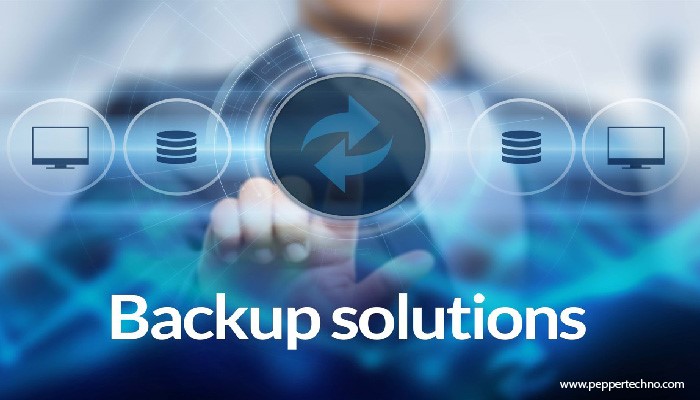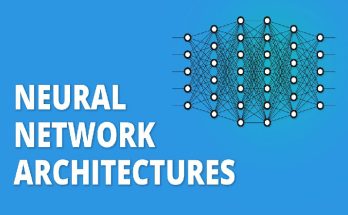Guardians of Data: Exploring Backup Solutions for Peace of Mind
Welcome to the digital age, where data reigns supreme! In a world powered by information, safeguarding your precious data is non-negotiable. Imagine the horror of losing important files or critical business documents due to a system failure or cyber-attack. Guardians of Data Exploring Backup Solutions for Peace of Mind is your ultimate guide to understanding the importance of backups and finding the perfect solution to keep your data safe and sound. Let’s embark on this journey together and unlock the secrets to secure your valuable information!

Understanding the Importance of Data Backup
In today’s digital landscape, data is the lifeblood of businesses and individuals alike. From important documents and cherished memories to critical financial records, our reliance on data continues to grow exponentially. However, with great convenience comes great risk. Imagine losing all your files in an instant – a nightmare scenario that can disrupt operations or cause irreversible damage.
Data backup serves as a safety net against such catastrophic events. By creating duplicate copies of your information, you ensure that even if disaster strikes, you’re data remains intact. Whether it’s a hardware failure, malicious software attack, or natural disaster, having backups in place provides peace of mind knowing that your valuable assets are protected.
Moreover, data backup is not just about storing files; it’s about preserving trust and reputation. For businesses, maintaining customer confidentiality and upholding compliance standards are paramount considerations when it comes to safeguarding sensitive data.
Embracing the significance of data backup is not merely an option but a necessity in today’s interconnected world where threats lurk around every digital corner. Stay ahead of the curve by prioritizing proactive measures to secure what matters most – your invaluable data.
Different Types of Backup Solutions
When it comes to safeguarding your valuable data, having different types of backup solutions is crucial. One popular option is cloud-based backup, where your files are stored securely on remote servers. This allows you to access your data from anywhere with an internet connection.
On the other hand, on-premise backup solutions involve storing backups locally on external hard drives or servers within your own premises. This gives you full control over your data and can be faster for large-scale restores.
Each type of backup solution has its own set of advantages and disadvantages. Cloud-based backups offer scalability and accessibility but may come with subscription fees. On-premise backups provide security and control but require more maintenance and physical storage space.
Choosing the right backup solution depends on factors like budget, data volume, and recovery time objectives. It’s essential to consider these aspects carefully before deciding which option best suits your needs.
Cloud-Based Backup Options
Cloud-based backup solutions offer a convenient and secure way to protect your data. By storing your backups in the cloud, you can access them from anywhere with an internet connection. This flexibility is especially valuable for businesses with remote employees or multiple locations.
One of the key advantages of cloud backup is its scalability. You can easily increase or decrease your storage capacity as needed without investing in additional hardware. This makes it a cost-effective option for businesses of all sizes.
In addition to scalability, cloud-based backup solutions often come with advanced security features such as encryption and multi-factor authentication. These measures help ensure that your data remains safe from cyber threats and unauthorized access.
Furthermore, cloud backups are automated, eliminating the need for manual interventions. This not only saves time but also reduces the risk of human error compromising your backups.
Choosing a reputable cloud-based backup provider can give you peace of mind knowing that your critical data is protected and easily recoverable in case of any unexpected events or disasters.
On-Premise Backup Solutions
On-Premise backup solutions involve storing your data on-site, within your organization’s premises. This approach gives you full control over where and how your data is stored, providing a sense of security and compliance with any regulatory requirements specific to your industry.
By keeping backups on-premise, you can quickly access and restore data without relying on an external service provider or internet connection. This can be beneficial for organizations that deal with sensitive information or have limited bandwidth for cloud-based solutions.
However, maintaining on-premise backup systems requires dedicated resources in terms of hardware, software, and IT expertise. Regular maintenance and updates are essential to ensure the reliability and effectiveness of the backup solution.
Despite the initial investment and ongoing maintenance costs associated with on-premise backups, many businesses find comfort in having physical control over their data storage processes.
Advantages and Disadvantages of Each Option
When it comes to choosing a backup solution, both cloud-based and on-premise options have their own set of advantages and disadvantages.
Cloud-based backups offer flexibility and scalability, allowing you to easily increase storage space as your data grows. They also provide off-site storage, ensuring that your data is safe in case of physical disasters like fires or floods.
On the other hand, on-premise solutions give you more control over your data since it’s stored locally within your organization’s premises. This can be advantageous for organizations with strict compliance requirements or sensitive data that cannot be stored externally.
However, on-premise solutions may require significant upfront investment in hardware and maintenance costs. They also lack the convenience of automatic updates and maintenance that cloud-based solutions offer.
The choice between cloud-based and on-premise backup solutions will depend on your organization’s specific needs, budget constraints, and security considerations.
Factors to Consider When Choosing a Backup Solution
When considering backup solutions, it’s essential to evaluate your specific needs and requirements. Start by assessing the amount of data you need to back up. Understanding the volume of data will help determine the storage capacity necessary for your solution.
Another factor to consider is the level of security offered by the backup solution. Data privacy and protection are crucial in today’s digital landscape, so ensuring that your chosen option has robust security measures in place is paramount.
Compatibility with existing systems is also key. Make sure that the backup solution integrates seamlessly with your current infrastructure to avoid any disruptions or compatibility issues down the line.
Scalability should not be overlooked either. As your business grows, so will your data volume. Choosing a scalable backup solution ensures that it can accommodate future growth without requiring a complete overhaul of your system.
Consider factors such as ease of use, cost-effectiveness, and reliability when selecting a backup solution tailored to meet both your immediate and long-term needs.
Tips for Implementing an Effective Backup Plan
Implementing an effective backup plan is crucial for safeguarding your valuable data. Start by conducting a thorough assessment of your data to determine what needs to be backed up and how frequently. This will help you prioritize your backup strategy and allocate resources accordingly.
Choose a reliable backup solution that meets your specific needs, whether it’s cloud-based or on-premise. Make sure to regularly test your backups to ensure they are working properly and can be easily restored when needed. Additionally, consider implementing a multi-layered approach by combining different types of backups for added security.
Establish clear backup protocols and procedures within your organization to ensure consistency and accountability. Train staff members on proper backup practices and designate individuals responsible for overseeing the process. Regularly review and update your backup plan as technology evolves and business needs change.
Remember, the key to successful data protection lies in proactive planning and continual monitoring of your backup systems. By following these tips, you can minimize the risk of data loss and maintain peace of mind knowing that your information is safe and secure.
Future Trends in Data Backup and Recovery
As technology continues to advance at a rapid pace, the future of data backup and recovery is poised for exciting developments. One trend that we can expect to see is an increased focus on artificial intelligence and machine learning in backup solutions. These technologies will help automate processes, improve efficiency, and enhance overall data protection.
Another emerging trend is the rise of hybrid backup solutions combining both on-premise and cloud-based options. This approach offers the benefits of both worlds – the security of local backups with the flexibility and scalability of cloud storage.
Furthermore, as cyber threats evolve, there will be a growing emphasis on cyber security within backup systems. Encryption protocols, multi-factor authentication, and ransom ware detection capabilities will become standard features in modern backup solutions.
In addition, we can anticipate more seamless integrations between backup software and other IT infrastructure components like disaster recovery planning tools or data analytics platforms. This integration will streamline operations and provide organizations with comprehensive insights into their data management strategies.
Conclusion
As data continues to play a crucial role in businesses and personal lives, the importance of having a reliable backup solution cannot be overstated. Understanding the different types of backup solutions available, such as cloud-based options and on-premise solutions, is essential in safeguarding your valuable information.
Cloud-based backups offer convenience and scalability, while on-premise solutions provide more control over data management. Each option has its own set of advantages and disadvantages that need to be carefully considered based on individual needs.
When choosing a backup solution, factors like security measures, storage capacity, ease of use, and cost should all be taken into account. Implementing an effective backup plan involves regular monitoring, testing restores, and adjusting strategies as needed to ensure data integrity.
Looking ahead, future trends in data backup and recovery point towards increased automation through artificial intelligence (AI) and machine learning algorithms. These advancements will streamline processes and enhance overall efficiency in protecting critical information.
Investing time and resources into finding the right backup solution today can prevent potential disasters tomorrow. Whether you opt for a cloud-based service or an on-premise system, prioritizing data protection is key to maintaining peace of mind in an increasingly digital world. Stay proactive in safeguarding your data – after all; it’s better to have it backed up twice than risk losing it once!



